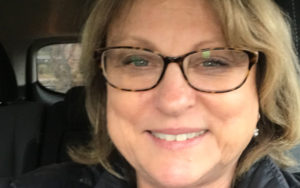Show Up this November 3rd; Be Part of History
Showing up makes a difference in any area of life – sports, social engagements, work, and especially now during election season. It gives us a stake in how decisions, outcomes, are made. For weeks we’ve heard how the 2020 presidential race is drawing out more registered voters than four years ago. However, who shows up to vote – and as importantly, who doesn’t – will have a deciding impact on the ultimate outcome of that race, launching our state and nation in either a new direction or a renewed course of action with major consequences for our day-to-day lives and the nation’s destiny.
We all have unique views of the world based on who we are, the issues we hold dear, and the experiences that shaped us. When we educate ourselves and candidates about the issues affecting children and families in our state –mental health supports, school wrap-around services, afterschool programming, second-and-third chance educational opportunities, career prep and advancement – we stand a better chance of getting elected leaders who will champion those causes. This election season it’s been gratifying and inspiring to see the young people we’ve engaged in youth-led candidate forums in mid- and southwest Michigan show up to tell their stories of challenge and heart-break before adults they’ve never met. It’s taken great preparation and courage on their part to bare the details of their lived experiences, in the hopes of guiding candidates toward understanding and one day championing their causes. If they can do it, so can all of us.
Voting is an important expression of civic engagement, but so is reaching out to elected leaders, to share our opinions, state our values, and educate them on what’s wrong and what’s right in our community during an election cycle and afterward. Even though people generally do care about the state of their communities and services that touch their lives, it’s surprising to me how few people make the connection between life in their neighborhoods, state, and nation, is tied to the decisions elected leaders make at those levels. Political engagement – reaching out to elected leaders by email, phone, or at a public forum, to share their viewpoint – is a powerful response that does make a difference in what elected officials throw their support behind. As a young intern in a state Senator’s office in Michigan, I helped keep tabs on the number of for and against callers on an issue moving through the legislature at the time. Years later, when I was elected to and served in two different public offices in my community, I was always intrigued and appreciative of those who would take the time to reach out, often bringing perspectives and insights that rounded out my decision-making. Their advice led me to make better decisions and sometimes helped me influence my colleagues as well. Information is power, so is debate and discussion, and I encourage constituents to embolden themselves to speak their mind before decision-makers.
Despite its impact, society generally hasn’t done a good job of educating people on how to become engaged and why, which is why advocacy groups like ours are committed to it. When people don’t show up at the polls, voter apathy is often blamed for low turnout when what we really should be examining is why some people feel their vote doesn’t count. Plenty of Americans have felt disenfranchised over the years for a variety of reasons, and making all people feel valued and included should be a priority for improving civic engagement. Tactics employed in some communities to suppress the vote and make it harder to vote have left too many black and brown people, for example, disenfranchised and feeling powerless to make a difference. We have serious work to do on this and other fronts. Gerrymandering, for another, has created districts where one political party perennially has the upper hand, discouraging those with opposing views for casting votes in those races, particularly in general elections. To work for positive change, we need to remove barriers to voting, continue to make it easier to vote, and encourage political and civic engagement year-round. With November 3rd just days away, decide to be a decider; choose to be a player, not bystander.
 Teri Banas is the Director of Storytelling and Media for Michigan’s Children.
Teri Banas is the Director of Storytelling and Media for Michigan’s Children.
